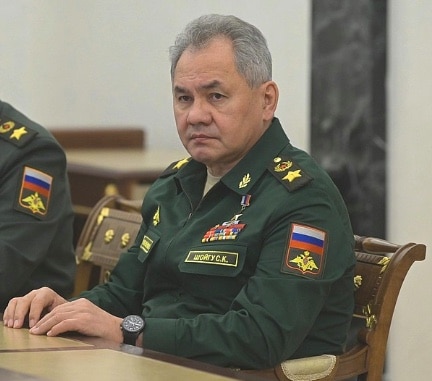Russian Defense Minister Defense Minister Sergei Shoigu on Monday reportedly made his first public comments since Wagner mercenary chief Yevgeny Prigozhin’s rebellion against the military—which allegedly included a plan to capture Shoigu.
Shoigu was seen in Kremlin-released images a week ago flying a helicopter, inspecting a Russian command point and listening to a report from subordinates about the war in Ukraine.
However, it was unconfirmed where or when the video was taken. A social media channel run by a former Russian defense ministry chairman claimed that it had been filmed in Belgorod prior to Prigozhin’s revolt.
In a Telegram post translated by Anton Gerashchenko, advisor to Ukraine’s Minister of Internal Affairs, Shoigu said this Monday, “These plans failed first and foremost because the staff of the armed forces demonstrated loyalty to their oath and military duty. The provocation did not influence the actions of combat groups. The soldiers continued to carry out the tasks set for them bravely and selflessly.”
On Wednesday reports had surfaced that Yevgeny’s aim was to capture Russia’s military leaders during his two-day uprising, including Shoigu and Gen. Valery Gerasimov, the chief of Russia’s general staff, when the pair arrived at the Ukraine-Russian border for a pre-planned visit.
The uprising began on Friday, June 23 when Prigozhin marched his columns of mercenaries into the Russian city of Rostov near Ukraine’s front lines. Prigozhin said his fighters “blockaded” the town “without firing a single shot.”
It ended the next day, after a deal was reportedly struck by Belarus President Alexander Lukashenko that Prigozhin’s mercenaries would receive immunity, and that charges brought against Prigozhin himself would be dropped, once he turned his columns away from their subsequent march toward Moscow. Before turning back, some 8,000 of Prigozhin’s mercenaries had come within 125 kilometers of the capital city, according to British Intelligence.
Prigozhin, who is now exiled in Belarus as per the deal, has insisted the uprising was never about regime change and has refused to call Wagner’s actions a “coup.”
A reported 1,000 of his mercenary forces—most of whom are convicts who were freed for the purpose of fighting with Wagner—have also left Russia for Belarus, per an offer by Russian President Vladimir Putin to drop all charges against them if they were to move to Belarus, join the regular military through Russia’s Ministry of Defense or simply “go back to their homes.”


